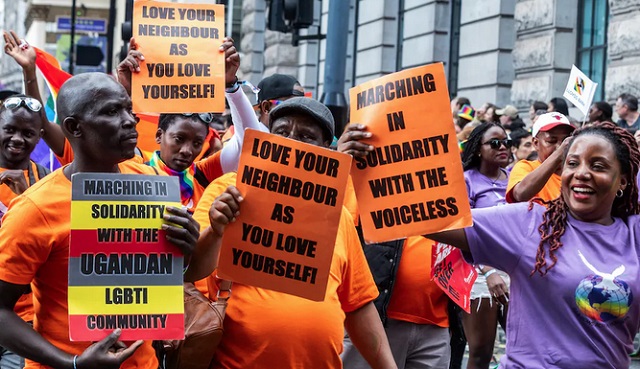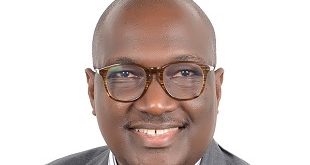
Fear over safety of researchers and study participants
ANALYSIS | LINDA NORDLING | Uganda’s chief science council has triggered outrage in the medical research community after suggesting researchers have a legal duty to report offences under the country’s anti-homosexuality laws, even if doing so breaches confidentiality rules.
The country’s much-criticised anti-gay law criminalises homosexual acts and imposes fines and prison sentences for people “promoting” or “aiding and abetting” homosexuality. Those working in areas such as HIV and Aids research could now face a choice between breaking confidentiality, putting those in their trials at risk, or being branded criminals themselves under the law.
“As a researcher in the area of global health and medical education I do think that this will negatively impact health research in Uganda on multiple levels,” Thirusha Naidu, a psychology professor at the University of KwaZulu-Natal in South Africa, told Research Professional News.
International research funders have also denounced the 27 October directive from the Uganda National Council of Science and Technology, which clarifies the duties of researchers under a much-criticised anti-homosexuality bill signed into law in May.
A spokesperson for United States Agency for International Development said the directive “is not compatible with USAID, nor any US government policies related to safeguarding vulnerable research participants”.
Warning of grave risks
Even before its assent, critics warned that the anti-gay law posed grave risks for staff and participants in HIV studies targeting men who have sex with men, who face a higher risk of contracting the virus.
The directive has made those fears concrete by stating that the duty of confidentiality towards participants in research “may be waived for purposes of reporting to the relevant authorities the commission of an offence, where a person involved in research detects that an offence under the anti-homosexuality act or any other laws was committed or intends to be committed”.
The directive also warns of consequences for researchers who refuse to report other transgressions.
It says: “Where a person involved in research detected that a crime under the anti-homosexuality act was committed against a child or vulnerable person, he or she is required to report and it is an offence if the person does not report the perpetrator to police.”
The UNCST did not respond to requests for comment from Research Professional News.
Last month, Catherine Kyobutungi, director of the African Health and Population Research Center in Nairobi, Kenya, slammed the directive in a post on X, formerly Twitter.
“Researchers in Uganda will now be expected to breach participants’ confidentiality and report them to the authorities if they are homosexual OR suspected to be homosexual,” she wrote.
“This goes against the foundations of internationally accepted ethical principles of research,” she added.
Funders’ concerns
Research funders active in Uganda are now struggling to work out how to deal with the directive and its consequences.
U.S. government funding for HIV and Aids research in Uganda has been under review since the anti-homosexuality bill came into force, a UNAIDS spokesperson said.
They said the U.S. government was “underscoring” to its partners in the country and to the government of Uganda that “U.S. government-sponsored research has safeguarding requirements that cannot be breached”.
The U.S. can withdraw funding if its confidentiality safeguards are not met, they added.
Other backers of work in Uganda are also trying to ensure work can continue safely.
Adam Kahsai Rudebeck, head of Swedish development cooperation in Uganda, at the embassy in Kampala, said both the embassy and the Swedish Development Cooperation Agency (Sida) were aware of the guidance document from UNCST.
Sida is in “constant dialogue” with partners in Uganda to ensure compliance with principles of non-discrimination and inclusivity, and “takes action if a partner acts in a manner that is inconsistent with those principles”, Rudebeck said.
He added that Sida has acted to ensure the directive does not influence an ongoing partnership with Uganda’s Makerere University.
“[We] have in dialogue with Makerere been assured that the guidance does not impact the implementation of the project and that the university abides by its own ethics guidelines for research,” Rudebeck said.
*****
Source: Research Professional News
 The Independent Uganda: You get the Truth we Pay the Price
The Independent Uganda: You get the Truth we Pay the Price



